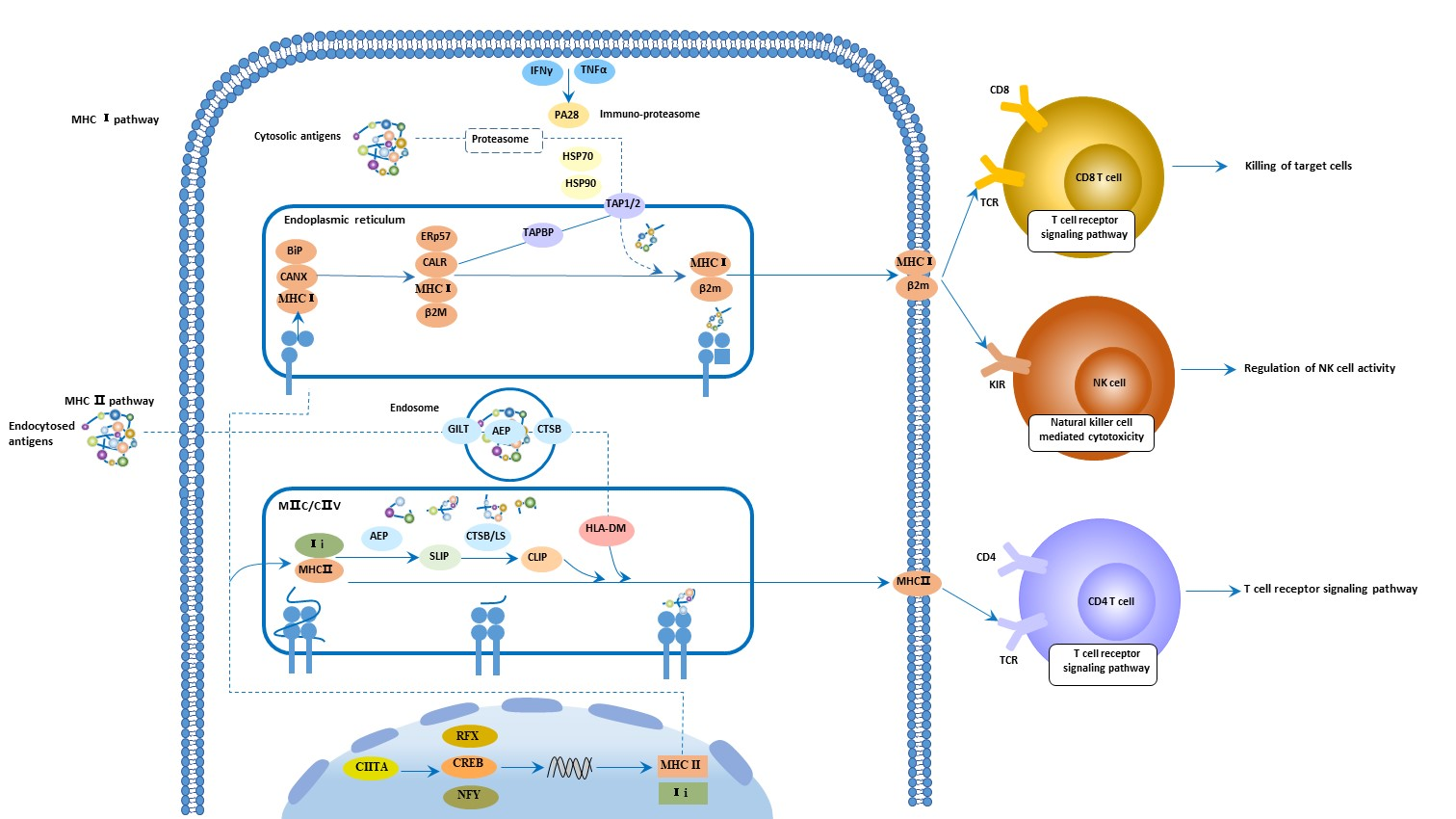
Antigen Processing and Presentation Signaling Pathway
Antigen processing and presentation involve two main pathway: MHC Ⅰ pathway and MHC Ⅱ pathway. Antigen presenting cells are important components of antigen presenting signaling pathway.
Antigen Presenting Cell
Antigen presenting cells are a kind of immune cells, whose main function is to absorb, process and present the processed antigen to T and B lymphocytes. APC can be divided into professional APC and non-professional APC. Professional APCs include mononuclear-macrophages, dendritic cells, endothelial cells, and B cells. It is characterized by the expression of MHC class II molecules; non-professional APCs usually do not express MHC class II molecules.
MHC Ⅰ Pathway
In the MHC Ⅰ pathway, intracellular synthetic endogenous antigens (such as tumor antigens and viral protein antigens, etc.) can be degraded into small molecular polypeptides by the proteasome in the cytoplasm.
Small molecule polypeptides bind to heat shock protein 70/90 in the cytoplasm and are then transferred into the endoplasmic reticulum via TAP and modified into antigenic peptides. MHC-I molecules are synthesized in the endoplasmic reticulum and bind to antigenic peptides to form complexes. The complex is transferred into the golgi apparatus and then transported to the APC surface by secretory vesicles for binding recognition by the corresponding CD8+T cells.
MHC II Pathway
In the MHC II pathway, the exogenous antigen is taken up by the APC by phagocytosis, and is decomposed into a small molecule polypeptide in the acidic environment of the endosome. The immunogenic small molecule polypeptide is called antigen. Peptide. On the other hand, MHC class II molecules are synthesized in the endoplasmic reticulum. The MHC class II molecule binds to the antigen peptide to form a complex, which is transported to the surface of the APC membrane by the Golgi apparatus and presented to CD4+ T cells with specific TCR for recognition.





